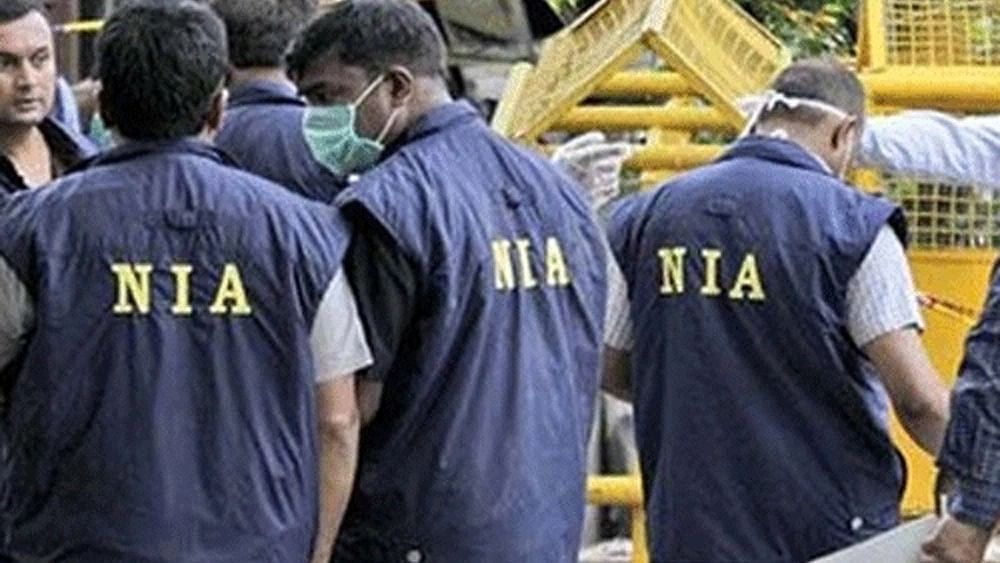
Representative image of National Investigation Agency (NIA) officials.
Credit: PTI File Photo
New Delhi: The National Investigation Agency (NIA) on Tuesday filed a charge sheet against five persons, including 'designated individual terrorist' Lakhbir Singh Rode alias Baba and Ranjot alias Rana, in a case relating to cross-border smuggling of arms by drones into Punjab.
Besides Rode and Ranjot, the others named in the charge sheet are Taranjot Singh alias Tanna and Gurjit Singh alias Paa of Gurdaspur in Punjab, and Pakistan-based smuggler Rehmat Ali alias Miyan, an NIA spokesperson said.
The charge sheet was filed in the NIA special court, Mohali, Punjab, in the case in which a cache of firearms and ammunition was recovered from a cremation ground in village Bagtana Boharwala, Dera Baba Nanak, Batala, in the border area of Punjab, on March 24, 2023.
The seizure had included five Glock pistols, 10 magazines and live cartridges (9 mm).
Investigations so far have shown connections between members of the proscribed terrorist organisation Khalistan Liberation Force (KLF) and individuals based in Pakistan in the case, the spokesperson said.
Along with the accused charge-sheeted on Tuesday, the NIA had identified one Malkit Singh alias Pistol also as involved in the intricate network of arms smuggling from across the border. Malkit was earlier charge-sheeted in the case on November 11, 2023.
Malkit, Tanna and Paa were found to have been in direct communication with Rehmat Ali, Rode, and Ranjot, the spokesperson said.
As per investigations, the smuggled arms were meant for use in targeted killings of persons from other faiths and for extortion to raise funds for the banned Khalistan Liberation Front and International Sikh Youth Federation (ISYF).
The entire conspiracy was also aimed at creating a stir in the media with the ultimate aim to create an atmosphere of fear and terror in India.
Rode was linked with the KLF and was the chief of ISYF, who is reported to have died in Pakistan in December 2023.
Both the KLF and ISYF have been banned by the Centre due to their direct involvement in a series of heinous crimes, including killings, bombings and various other terror activities, as part of their violent campaign.
The ban on these organisations was a response to their orchestrated armed attacks on law enforcement personnel, criminal intimidation, murder, extortion, fundraising for terrorist activities, and instilling terror among the general populace.
The present case was initially registered at Batala police station under various sections of the Arms Act and the Aircraft Act.
The NIA had taken over and re-registered the case by adding certain sections of the stringent Unlawful Activities (Prevention) Act.